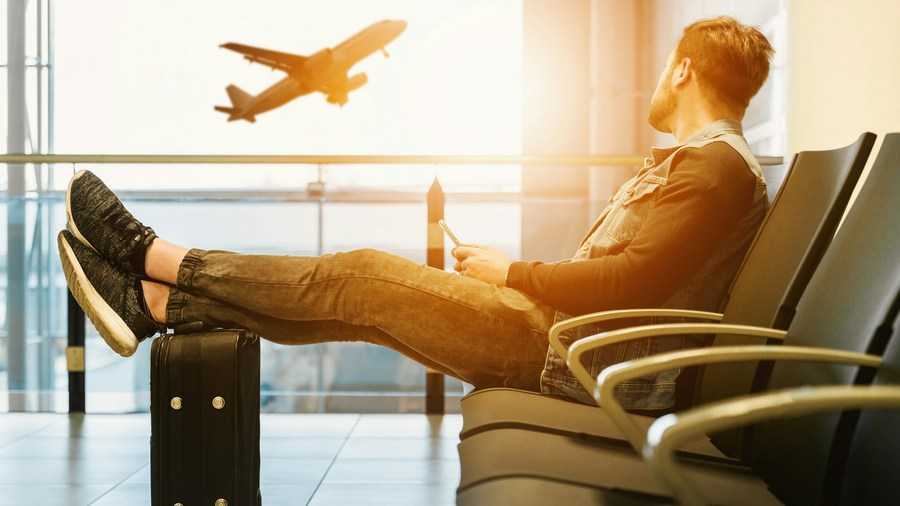Science
The Monk Who Saw the Future: Did an 11th-Century Benedictine Beat Astronomers?
17 February 2026

It's a kind of magical thinking that if someone's eyes move to a certain number of places, their personality will change and their horizons will broaden. The idea that travel leads to any serious cognitive gains is absurd, says Dr. Dominik Lewiński from the University of Wrocław.
Dominika Tworek: Travel destinations in “Third World countries,” or even places like Albania, are becoming increasingly popular. Is this driven not just by a desire for a “wild experience,” but also an unconscious feeling of moral superiority?
Dr. Dominik Lewiński: Despite their private, psychological motivations, people unconsciously fulfill certain pre-established social and cultural functions when they travel. The phenomenon you’re asking about is related to postcolonial tourism. It’s connected to our colonial mentality: the white person goes to see the “savages.” I call it “pornotourism.” An influencer travels to a Brazilian favela and, with tears in her eyes, gives candy to children. In reality, she’s basking in the moral luxury of a white colonizer giving sweets to “Bambo Negroes.”
When visiting Third World countries, we indulge in the moral and intellectual superiority of the white person over a darker, unhappily-governed people. Building one’s ego on sentiments straight out of In Desert and Wilderness can be seen as disgusting. However, I wouldn’t make a moral judgment. That’s because travel is the new ideology of our time. And we are culturally forced into it.
Are we just traveling to the ends of the earth to take a picture against an attractive backdrop and then show off to our friends?
It’s an oversimplification to say we go somewhere just for photos. However, everyone who travels later shows them off online, with various social motivations. The most important one—which you could simplify by saying people travel for photos—is securing “cheap nobility.” By visiting a variety of holiday destinations, we are buying our status as a modern-day aristocrat.

My research clearly shows that exploring other cultures today is simply a social compulsion to travel. If someone has checked off 50 countries, we automatically assume they have a fascinating, experience-rich life. They are considered an interesting and valuable person. In contrast, someone who has never left their hometown is a boring person with a narrow perspective. Their life is monotonous, unfulfilled, and unhappy. This has been very well-researched empirically, especially among students.
Since travel makes us proud, should we feel ashamed when we stay home for a holiday?
This is about a widespread social mechanism that sociologist Pierre Bourdieu called “distinction.” It’s the division of people into those with more and less valuable lives. In ancient times, this was determined by birth. Later, this class order collapsed, but the drive for superiority and inferiority in culture remained. For a time, “high culture” served this function of dividing people into better and worse. Someone who went to the opera and read poetry was better than someone who listened to pop folk. Today, that division is essentially gone, but we still want to divide society.
Why did travel take on this function?
Because it’s simple and cheap. To travel—and thus be seen as cool—you just need to have eyes. Participating in high culture, however, requires competence, and acquiring that takes time. But travel doesn’t require any skills other than having eyes. Today, what makes us valuable people is simply having our eyes see one, two, three, or fifty different places. The measure of a person’s worth is only that one pair of eyes has seen more than another.
You might like to read: Israel: A Country With No Fixed Borders and an Incomplete Constitution
In the age of cheap flights and various promotions, travel is indeed not expensive. Additionally, we have backpackers who travel the world on a budget with a tent and a backpack. I used to travel like that, and today I remember the feeling of superiority over those who booked all-inclusive holidays.
This connects to the belief that we, the “true” travelers, get off the beaten path to meet the real locals and see a world that isn’t a staged performance for ordinary tourists. We go deeper, behind the scenes. We are the travel aristocracy—we are something special.
But surely travel broadens the mind; exploring other cultures expands our horizons…
It’s a kind of magical thinking that if someone’s eyes move to a certain number of places, their personality will change and their horizons will broaden. The idea that significant cognitive gains come from travel is absurd. Do we see millions of Poles suddenly turning into expert, competent cultural studies scholars after their foreign holidays? Anthropological studies are what serve to truly understand other cultures. And the elementary tool for this is knowing the language of the locals. How many Poles speak Albanian? This isn’t true understanding, but a mere illusion: registering the potential differences between my culture and the culture of a country I’ve visited as part of pornotourism.
Isn’t the sheer experience of otherness enriching?
In my opinion, it’s completely worthless. You could just as well get that “experience of otherness” by meeting people on railway platforms who are contemptuously called “winos.” What’s the difference between a Polish “wino” and a Brazilian pauper? Here, exoticism; there, exoticism. Here, misery; there, misery.

In the winter, many people escape to warmer countries. Is this not just to avoid the cold, but also the holiday obligation of spending time with family? Does our desire to travel expose a lack of rootedness in the place where we live?
These “escape-cations” are primarily about racking up points in the nobility ranking. Secondly, running away from family shows that the role of social bonds has changed dramatically in recent decades. A significant part of the population is reluctant to maintain family ties, and fewer and fewer people are entering into matrimonial relationships. This is partly because in a time of galloping self-development, bonds—which come with expectations and obligations—prove to be burdensome. And we want to have as few of these compulsions that might hinder our self-realization as possible.
Why do young people today choose self-realization through travel instead of focusing on building good relationships?
I wouldn’t blame them. They have no other choice. Contemporary culture commands them: you must develop, you must self-actualize, and the cherry on top of this process is a large number of trips. As a result, family ties, relationships, and having children fall to the wayside.
Today, there’s a growing, forced love for travel. With every trip, we need to feel that our life is “wow.” How many people travel to the same place over and over because they fell in love with it and feel wonderful there? Such people are a complete minority. Everyone else is more or less feverishly checking off travel destinations.
As if you couldn’t just relax on a two-week holiday.
That is, in my opinion, the only sensible motivation for traveling. Changing your surroundings relaxes your nervous system and resets your brain. That’s why I really like it when the so-called working class travels: they buy an all-inclusive package and lie on the beach or by the pool, simply resting. In contrast, a person who was crossing the Mongolian steppes at the same time usually needs a second holiday to rest after their trip.
Recommended: Farewell to Africa: How Russia is Replacing France
Does our immersion in this “exoticism” also harm the indigenous people? On the one hand, locals profit from tourism (bar owners, artisans, vendors, bus drivers, guides). On the other, they are gradually becoming tourist attractions themselves.
The natural way of life of these people is irreversibly destroyed—they become monkeys in a tourist circus. Both the poor inhabitants of Bali and the Zakopane highlanders dress up and play folk songs for money.
Tourism—whether mass or not—also causes terrible, irreversible damage to the natural environment. And it doesn’t actually help these countries develop. When an exotic destination becomes trendy, a huge number of hotels immediately appear, infrastructure expands, and so on. Let’s note that trips to these places are organized by travel agencies located in First World countries, and corporations build the hotels. Locals get the lowest-paying jobs—as rickshaw drivers, cleaners, or dishwashers in hotels. This destroys these countries’ economies by making them dependent on tourism, where the profit doesn’t flow to them at all. They—the locals—get crumbs.
The residents of Barcelona are hugely fed up with tourism today, as they can’t rent an apartment at a normal price because the entire market is dominated by Airbnb rentals.
But they can afford to be upset, while the residents of poorer regions of the world have no voice. The tourism industry simply moves in, destroys their way of life, and condemns them to work in the worst professions.
Should a truly moral traveler essentially never leave home?
Such a moral traveler, who would ride a bike to a nearby lake and not contribute to the destruction of nature or the impoverishment of locals, is not a common case. People have to travel because it is, in essence, the only meaning of life that contemporary culture serves up on a platter. The recent proposal for the meaning of life was a bit different: fall in love, create a happy marriage, raise children. But today, it’s about collecting experiences. And travel experiences are the most valuable element of our collections. For now, there is no alternative offer for the meaning of life on the horizon.

In a time where travel is an end in itself, people work hard precisely so they can go to Bali.
We live in a society of fatigue, under a compulsion to be efficient and effective, in a never-ending pursuit of a better version of ourselves. The catch is that this self-realization is an illusion. It’s not about the person at all, but about a potential employee on the job market. Why, as part of self-development, do people not read poetry but instead learn new languages or master new skills? I have a theory that travel is a kind of Marxist opium for the masses. It used to be religion because the more suffering in life, the more certain the reward after death. But today, people don’t rebel because they have a reward during life—a holiday trip to Bali.
What do your students say when you tell them this?
They simply fall silent. Usually, there are lively discussions in the group. But this topic always causes a terrifying, sad silence.
Read the original article: Przybyłem, zobaczyłem, odhaczyłem. O podróżach, które nie kształcą
Science
17 February 2026



Zmień tryb na ciemny